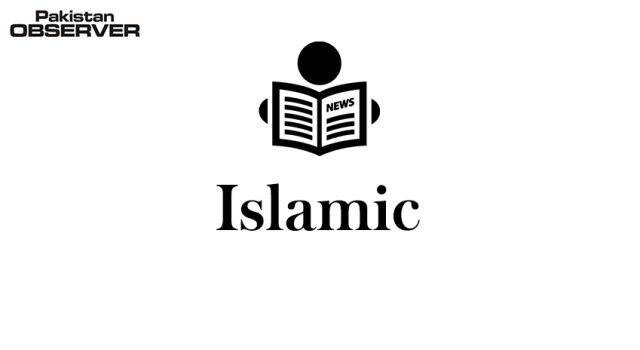Stuart Brown
Since the inception of the Islamic finance industry in the 1970s, there has been a steady growth in demand for sharia-compliant products and services and the industry’s total assets reached US$2.5 trillion globally in 2019.
Given the headwinds posed by the COVID-19 pandemic, the volatility in oil prices and the uncertain macroeconomic environment, the Islamic finance industry faces an unprecedented challenge to its development.
Nevertheless, COVID -19 is also shifting the dynamics in the industry and the outbreak may create new opportunities for Islamic finance markets by accelerating trends such as socially responsible investing, sustainability, and digitalization.
The impact of the 2008 global financial crisis on Islamic banks and financial institutions was largely minimal due to the prohibitions against speculation and risky asset classes in the industry.
However, the COVID-19 pandemic will have a more severe and deeper impact on Islamic finance markets, as the current crisis is affecting small and medium enterprises (SMEs) as well as low income and minimum wage individuals particularly hard. Compared to conventional banking, Islamic finance has a larger exposure to SMEs, microfinance, and retail lending, especially in Asia.
Despite government measures such as Indonesia’s tax break facility and Malaysia’s Special Relief Facility for SMEs, these businesses are still under immense financial strain given the lockdown measures and store closures imposed to contain the COVID-19 outbreak.
Beyond its immediate economic implications, COVID-19 is also forcing the Islamic finance industry to adapt to rapidly evolving market conditions and speeding up the pace of emerging trends such as digitalization to mitigate the impact of the outbreak.
Even before the COVID-19 pandemic, Islamic banks have been trying to catch up with conventional banking counterparts by stepping up investment in digitalization to reduce operating expenses, boost revenue and automate internal processes.
As financial institutions around the globe implement remote work policies and homebound safety measures amid the outbreak, there has been a considerable increase in digital banking transactions and activity, which in turns provides an added impetus driving the digital transformation push across Islamic banks. These may include increased automation of processes to minimize the need for human contact as well as digital structures for liquidity management.
Against the backdrop of the COVID-19 pandemic, fintech will continue to play a significant role in the industry’s development in the coming years by improving access to financial services and transforming Islamic social finance.
In Indonesia, where Islamic financial institutions disbursed $16 million in corporate social responsibility funds in 2018, the National Committee for Islamic Finance has partnered a centralized quick response code payment platform owned by four Islamic units of state-owned banks to develop a digital platform for distributing Islamic social finance funds and to help Islamic finance cooperatives better manage funds from zakat and waqf payments.
Another new development was the acceptance of zakat payments in the form of cryptocurrencies in 2018. In response to consumer demand, Islamic finance microfinance firm Blossom Finance’s Jakarta office began accepting payments made directly via the blockchain to a wallet address held at a cryptocurrency exchange in Indonesia. The funds are then distributed via an Islamic financial cooperative to any of the 87 microfinance institutions Blossom has partnered with.
In April 2020, the United Nations Development Program (UNDP) highlighted several sharia-compliant financing instruments that could be part of the integrated pandemic response plan including zakat (charity) and sukuk (Islamic bonds) to help countries prepare, respond, and recover from the pandemic.
UNDP’s partnership Baznas, Indonesia’s national zakat collection agency, has been in place since 2017. This collaboration provides an example of how zakat stakeholders can systematically link their projects with the Sustainable Development Goals (SDG), including in response to crises.
The ongoing COVID-19 outbreak has prompted financial institutions across the globe to pay greater attention to environmental, social, and governance (ESG) risks to build greater resilience in their business operations and supply chains, and we believe that Islamic finance markets will see a similar trend as well.
In fact, an analysis of the 6,554 companies in Refinitiv’s EIKON global database shows that sharia compliance screening can do much to improve ESG performance and sharia-compliant companies — to which Islamic financial institutions will direct capital — have ESG scores that are on average 6 percent higher than for those excluded by the sharia screening process.The principal source of ESG risk facing Islamic banks is embedded in their balance sheets though the financing they provide, and it is becoming clear to financial institutions around the world that ESG risks will affect their potential profitability, portfolio risk levels and returns on capital. Not only will improving ESG risk management benefit the bottom line, the strategic shift towards responsible finance will also unlock new opportunities for Islamic banks to differentiate itself from peers and unlock new business opportunities in the post-COVID environment. —(Courtesy: Jakarta Post)










